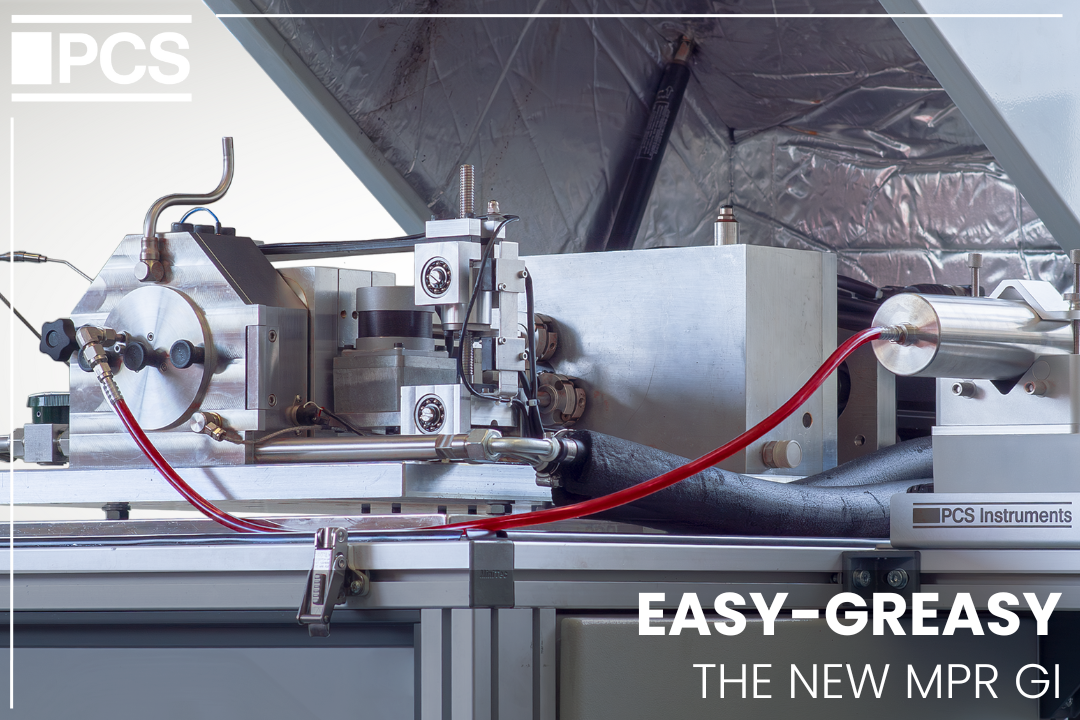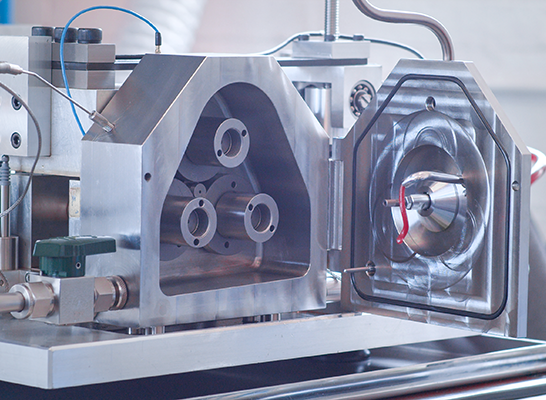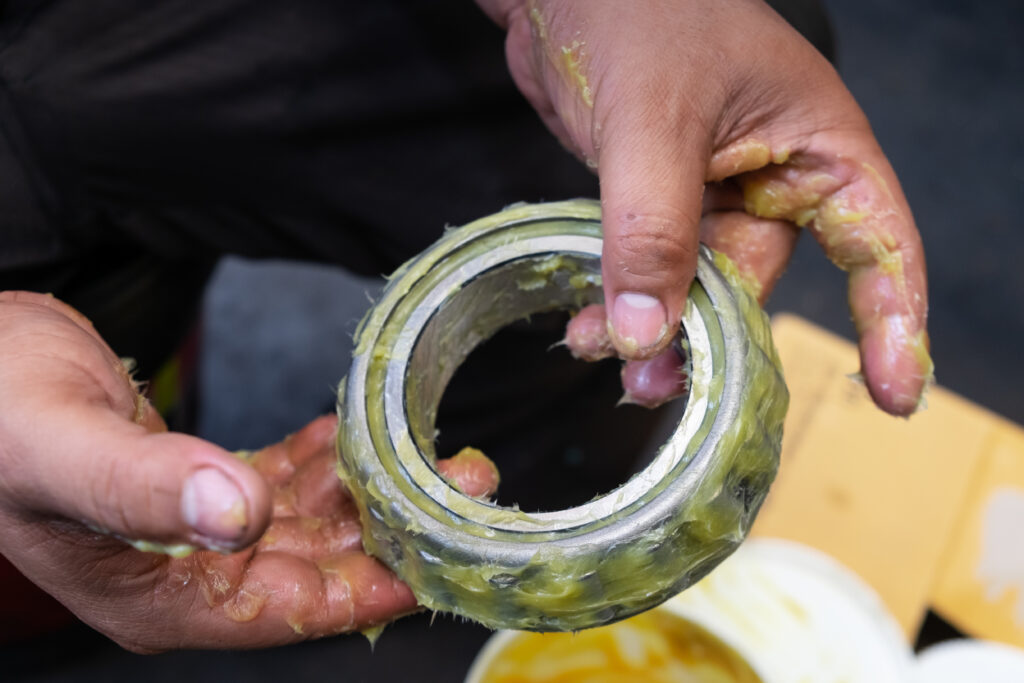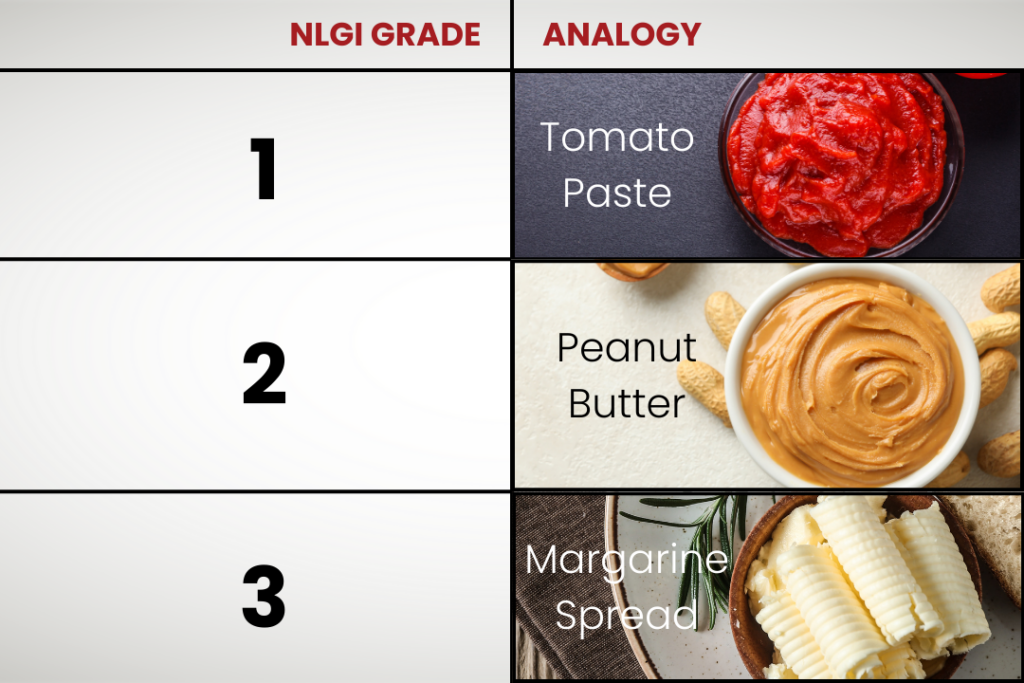Easy-Greasy: The New MPR GI

Testing grease in conditions that mimic real-world mechanical stresses has always been a significant challenge for researchers. Starvation during these tests can skew results, making it hard to predict how a grease will perform under actual working conditions. That is why we created the PCS Instruments MPR GI – a brand new, optional accessory for the MPR.
This cutting-edge accessory delivers grease to the MPR’s three-disc contact in a controlled, accurate, and repeatable manner, guaranteeing that starvation doesn’t compromise test data. It’s a significant step forward in the testing of fatigue behaviour of greases, integrating smoothly with the existing MPR software for ease of use and complete user customisation. We sat down with Rory McAllister, Senior R&D Engineer here at PCS Instruments, to get an insider’s look at this innovative tool.

- PCS: Hi Rory, let’s start with the basics – What is the MPR GI?
Rory: The MPR GI is an add-on to the MPR which allows repeatable grease testing, preventing lubricant starvation which can ruin a test or at the very least make them unrepeatable. It does this by pumping up to 300 mL (before a refill is needed) of grease directly to the contacts, at a user-configured flow rate. As you’d expect, this flow rate is largely dependent on the grease being tested.
- PCS: So it’s an add-on specifically designed for grease testing, but why are greases so important compared to say, lubricating oils? What are the functions/applications of greases?

Rory: Greases are really essential to every day life because they lubricate the vast majority of rolling element bearings, and the world (literally) runs on bearings. They have lots of other applications too.
The difference between greases and oil is really just that grease contains a thickener, giving it a yield stress and shear-thinning properties.
And in terms of function, you use a grease basically where you want oil to stay put. It won’t immediately leak out of a bearing. It tends to be a much simpler solution than an oil system, which might need a pump, cooler, filter etc.
- PCS: Interesting! So how does the MPR GI actually deliver a grease into the contact?
Rory: The main part of the MPR GI system is an accurate and high-force syringe pump, which will push grease at a given flow rate into the contact path, meaning you can get continuous lubrication and no starvation! It can also be operated in an intermittent mode, if you want to have a certain period with no additional lubricant added.
The MPR GI software makes this very easy – calculating required grease volume and recommending pauses at the correct interval to refill the syringe, or clear excess grease from the pot, meaning users will be able to leave the MPR GI to just do its thing without worrying about keeping a close eye on it.
- PCS: Will the MPR GI help researchers with any particular issues facing grease testing, and what kinds of industries would benefit from the MPR GI?
Rory: The MPR GI system will be really useful for anyone wanting to test greases in the MPR – without it, you risk frequent starvation and that will certainly affect any of your test results. Investigating rolling contact fatigue with greases is a real challenge at the moment, and is extremely important given they are used in bearings which are certainly susceptible to rolling contact fatigue. The system will make it a lot easier to conduct studies in this field, and with higher confidence in the results.

- PCS: Given the flow rate into the contact is dependent largely on the type of grease being tested, what kinds of grease can the MPR GI actually be used to test?
Rory: The MPR GI can use any greases up to NLGI 3 consistency, so covers the range of consistencies that are commonly used in bearings. Other than that, any kind of grease can be used. Apart from bearings, the system will be useful anywhere micropitting and greases meet, so greased gearing (as opposed to oiled) is another potential application!
Our conversation with Rory underscores the groundbreaking potential of the MPR GI, which not only promises enhanced precision and reliability in grease testing but also extends the capabilities of existing MPR systems, offering researchers and industries a tool that combats the traditional challenges faced in grease lubrication testing.
By enabling continuous, controlled lubrication, the MPR GI sets a new standard in the assessment of grease performance under stress – which means more durable, reliable machinery across a broad spectrum of applications!
To stay updated with the newest industry insights through our articles and news, click here!
